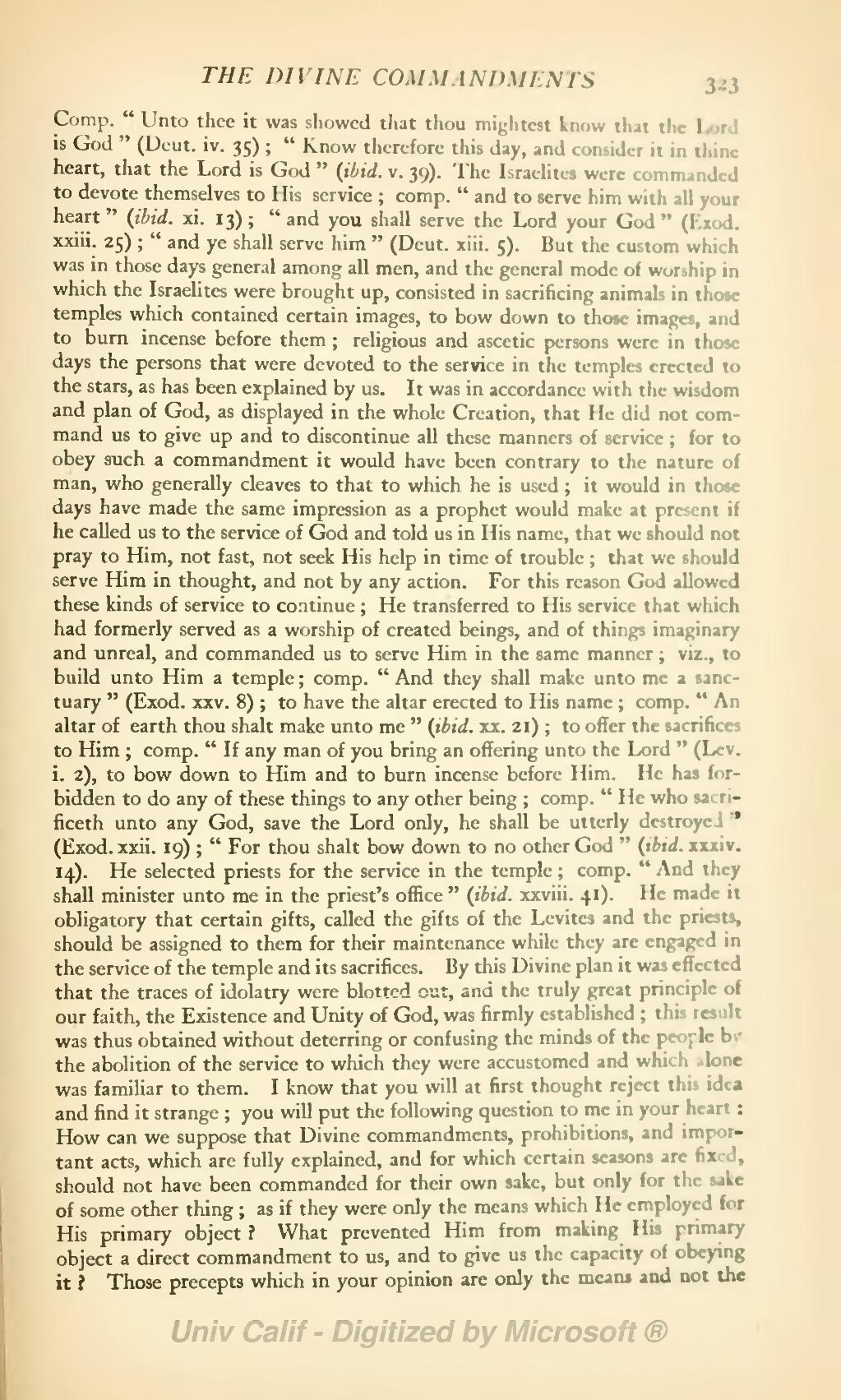Unto thee it was showed that thou mightest know that the Lord is God (Deut. iv. 35); "Know therefore this day, and consider it in thine heart, that the Lord is God" (ibid. v. 39). The Israelites were commanded to devote themselves to His service; comp. "and to serve him with all your heart" (ibid. xi. 13); "and you shall serve the Lord your God" (Exod. xxiii. 25); "and ye shall serve him" (Deut. xiii. 5). But the custom which was in those days general among all men, and the general mode of worship in which the Israelites were brought up, consisted in sacrificing animals in those temples which contained certain images, to bow down to those images, and to burn incense before them; religious and ascetic persons were in those days the persons that were devoted to the service in the temples erected to the stars, as has been explained by us. It was in accordance with the wisdom and plan of God, as displayed in the whole Creation, that He did not command us to give up and to discontinue all these manners of service; for to obey such a commandment it would have been contrary to the nature of man, who generally cleaves to that to which he is used; it would in those days have made the same impression as a prophet would make at present if he called us to the service of God and told us in His name, that we should not pray to Him, not fast, not seek His help in time of trouble; that we should serve Him in thought, and not by any action. For this reason God allowed these kinds of service to continue; He transferred to His service that which had formerly served as a worship of created beings, and of things imaginary and unreal, and commanded us to serve Him in the same manner; viz., to build unto Him a temple; comp. "And they shall make unto me a sanctuary" (Exod. xxv. 8); to have the altar erected to His name; comp. "An altar of earth thou shalt make unto me" (ibid. xx. 21); to offer the sacrifices to Him; comp. "If any man of you bring an offering unto the Lord" (Lev. i. 2), to bow down to Him and to burn incense before Him. He has forbidden to do any of these things to any other being; comp. "He who sacrificeth unto any God, save the Lord only, he shall be utterly destroyed" (Exod. xxii. 19); "For thou shalt bow down to no other God" (ibid. xxxiv. 14). He selected priests for the service in the temple; comp. "And they shall minister unto me in the priest's office" (ibid. xxviii. 41). He made it obligatory that certain gifts, called the gifts of the Levites and the priests, should be assigned to them for their maintenance while they are engaged in the service of the temple and its sacrifices. By this Divine plan it was effected that the traces of idolatry were blotted out, and the truly great principle of our faith, the Existence and Unity of God, was firmly established; this result was thus obtained without deterring or confusing the minds of the people by the abolition of the service to which they were accustomed and which alone was familiar to them. I know that you will at first thought reject this idea and find it strange; you will put the following question to me in your heart: How can we suppose that Divine commandments, prohibitions, and important acts, which are fully explained, and for which certain seasons are fixed, should not have been commanded for their own sake, but only for the sake of some other thing: as if they were only the means which He employed for His primary object? What prevented Him from making His primary object a direct commandment to us, and to give us the capacity of obeying it? Those precepts which in your opinion are only the means and not the object
Page:Guideforperplexed.djvu/393
